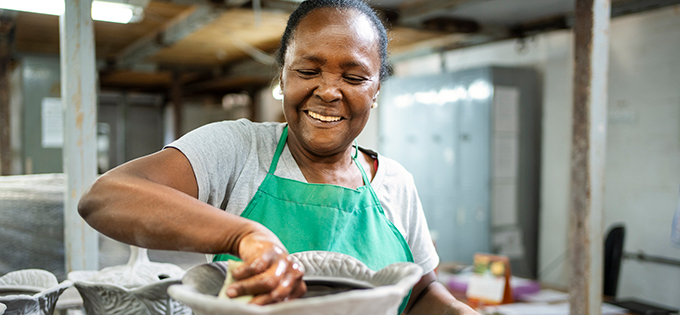Updating your browser will give you an optimal website experience. Learn more about our supported browsers.
How to Fund Your Retirement Hobby
Hobbies can boost morale, but they’re not always fixed-income friendly. Here’s how to fund your new hobby without compromising your financial security.
By Rebecca L. Bennett
According to AARP, one of the most fulfilling ways to spend your retirement is by pursuing activities that bring you enjoyment and give you a sense of purpose and meaning. In fact, in AARP’s article, “10 Secrets of a Happy Retirement,” an expert recommends having not just one retirement hobby, but actually two or three, and incorporating those hobbies into your daily routine.
But sometimes, hobbies come with price tags. Hiking, for example, requires a sturdy backpack, outdoor clothing, a durable and comfortable pair of boots and possibly hiking poles — none of which are cheap!
If the hobby you’re eyeing may put a strain on your wallet, it might be time to tinker with your budget:
Assess Your Finances
First, take an inventory of your current income and expenses. After the checks come in and bill payments go out, do you have any excess spending money for your new hobby? Try to identify unnecessary expenses you could trim to free up some funds.
Create a Hobby Fund
Next, create a hobby fund within your regular budget. Budgeting a little each month will help ensure you can prioritize and enjoy the activity without financial strain. It also means you won’t be tempted to dip into your savings. You can adjust this amount as you go!
Look for Cost-Effective Alternatives
You could also explore cost-effective ways to indulge in your hobby. If you’re passionate about art, this could mean buying adequate rather than top-of-the-line art supplies, or attending community classes instead of pricey workshops.
Take Advantage of Senior Discounts
Another way to save money on your hobby is by taking advantage of senior discounts. Whether it’s cheaper admission tickets, membership fees or product purchases, these savings can improve your hobby budget, allowing you to do more with less.
Generate Additional Income
One more way to fund your retirement hobby is by creating more income, whether this is through the hobby in question or other means. Some examples are renting out your equipment or space, teaching classes, selling handmade crafts or offering consulting services. However, keep in mind that mixing work and play can sometimes take the enjoyment out of an activity!
Related Content
Get more information on why TCDRS is a model plan when it comes to retirement.

10.26.2023
How to Outsmart the Big Bad Charity Wolf
Legitimate charities lose up to 5% of their revenue each year to fraud. Here’s how to ensure your donations make it into the right ha...
Read more
09.09.2024
The Ultimate Quest: Leveling Up Your Finances for Retirement Victory
It’s time to gear up and get ready for retirement! Whether you’re just starting your journey or preparing for the final level, here a...
Read more
12.17.2024
Where There’s a Will, There’s a Way
Estate planning isn’t the easiest topic, but it’s an important one. Planning ahead will help to reduce stress for your loved ones and...
Read more